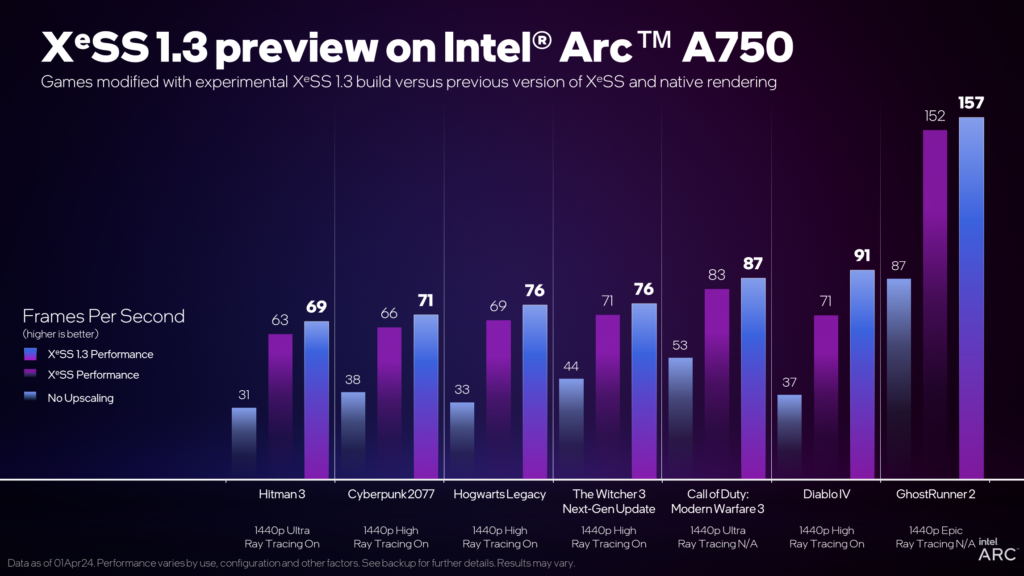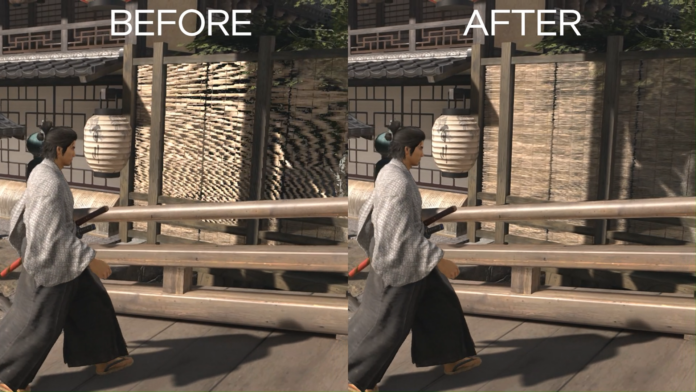Of all the AI upscalers out there, Nvidia DLSS is the most notable. After all, it’s a couple of generations ahead and leads the pack with quality. Rivals are rapidly catching up, though, and don’t have the same GPU exclusivity constraints. Cue the latest Intel XeSS update, which showcases just how hot the competition is getting.
Intel XeSS 1.3 has just launched, bringing with it a big old boost to its AI upscaling. Xe Super Sampling, to use its full name, is a lot like Nvidia DLSS (Deep Learning Super Sampling) and AMD FSR (FidelityFX Super Resolution). Its aims are threefold: boost frame rates, give better image clarity, and make everything more efficient. While image enhancements help video streaming, the primary use is to improve gaming and make ray tracing more accessible.
Team Blue’s solution is unique in that it’s the only one to use both AI enhancements and remain cross-platform. Nvidia utilises AI, but only GeForce RTX graphics cards can use it. AMD FSR is hardware agnostic but doesn’t use AI at all, instead relying on temporal upscaling. It’s impressive stuff, even if it has some way to go to catch up to Nvidia. You can see the fruits of its winning combination below with the 1.3 update. It’s nothing short of modern-day magic.

Intel claims that the XeSS 1.3 update boosts frame rates by up to 10%. However, this time around, it’s less about a raw performance increase and more about clarity. The new version handles visual errors better, resulting in fewer issues with anti-aliasing, ghosting, and other oddities. It’s come a long way from the first XeSS preview back in 2022. As usual, it’s worth taking Intel’s blog with a grain of salt until we can see more third-party tests. After all, these are internally cherry-picked figures.
The real test will be the hordes of tech YouTubers who push this to the limit in every way any human being can imagine. That’s when all of us can see the true ceiling of the new XeSS 1.3 update. Still, though, a new update is nearly always worth taking a proper look at, and if you want to do so, then you can grab it from GitHub right now.


